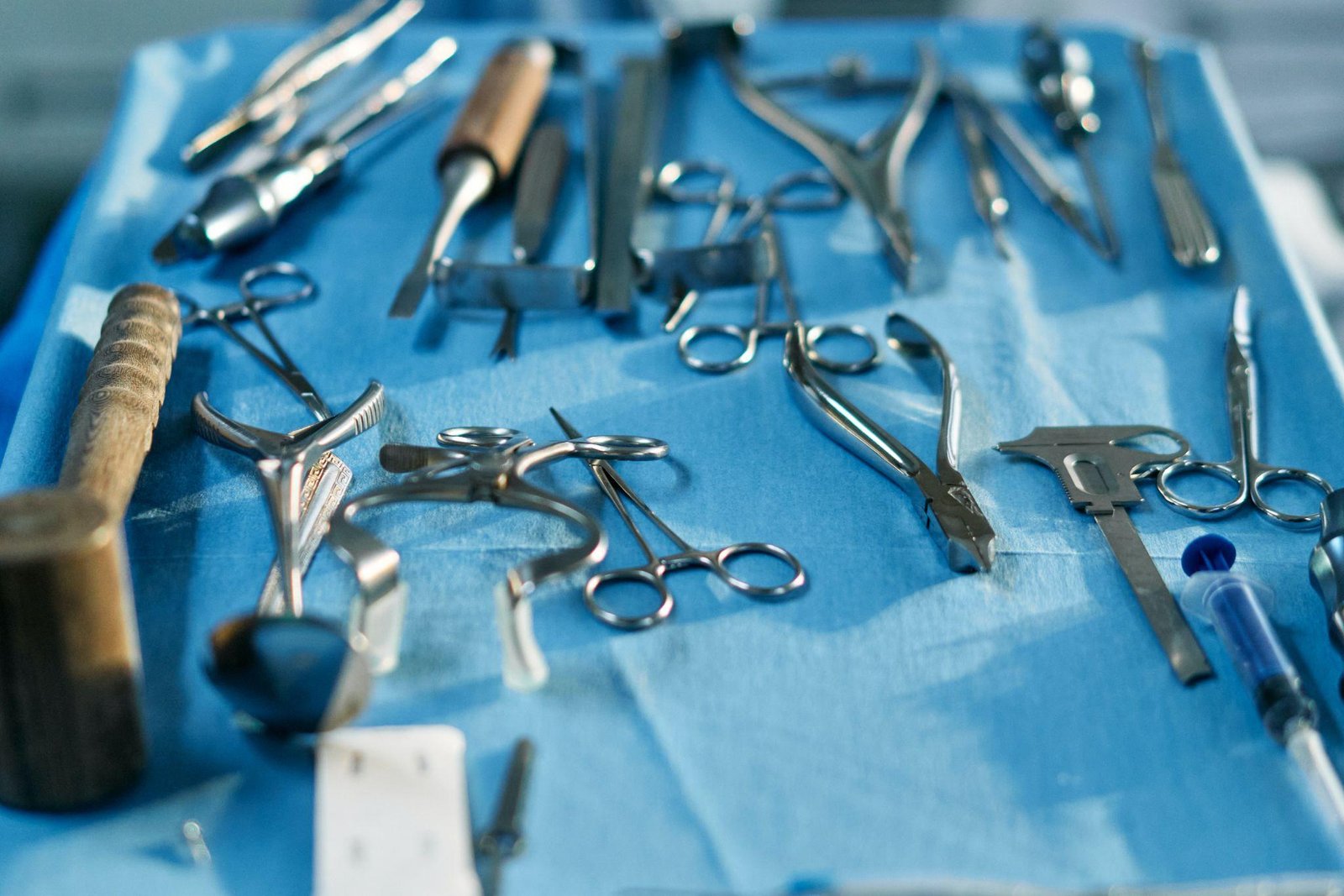Do you wish to improve the lives of those who have served their country? One way to achieve this is to get work as a VA community care provider in outpatient surgical clinics. As a provider of community care, you can help ensure that veterans who visit these facilities get the medical attention they require.
The goal of the Veteran Community treatment Programme is to provide veterans with access to medical treatment that is not available at their regional VA hospital. You may take part in this initiative as a VA community care provider and help supply veterans with much-needed medical aid.
In this article, we’ll discuss the steps necessary to become a VA community care provider at outpatient surgical centers. We will discuss the steps you need to take to get licensed, including the formal exams, licenses, and certifying authorities required by the profession. If you care about improving the lives of veterans, read on.
What Are Ambulatory Surgery Centers?
ASCs, or ambulatory surgical centers, are places where outpatient procedures can be done. In comparison to many hospitals, ASCs offer lower prices, shorter wait times, and a more relaxed atmosphere. Patients who opt to have their procedures done at an ASC check in on the day of their operation, have their procedures done in a fully equipped operating room, and recuperate under the care of highly competent nurses without having to stay in a hospital. Patients and their loved ones, regardless of age, may relax in the soothing settings provided by ASCs. ASCs may undertake procedures from a variety of medical fields, or they may focus on only one, like ophthalmology or orthopedics.
Benefits of Ambulatory Surgery Centers
Your surgeon may offer you the option of having your treatment in a hospital or an ambulatory surgical facility once your primary care physician refers you to one. Can you explain the distinction between the two and tell me if one is preferable to the other?
There are several benefits to having your surgery done at an ambulatory surgical facility rather than an inpatient hospital, including but not limited to:
Lower prices:
Patients often don’t have to pay for the expense of a hospital room and board at an ASC.
Care that is both quick and easy to access:
In most cases, you may go home the same day after a day of outpatient surgery.
Reduced complication rates:
Less postoperative discomfort and infections are reported following operations performed in ambulatory care settings, according to studies.
Decreased anxiety:
Unlike hospitals, ASCs tend to be more peaceful places to get medical care. In addition, patients can avoid an overnight hospital stay by recuperating at home.
Community-based:
The needs of the local community are often prioritized by ASCs. Affordable, patient-centered care allows doctors and nurses to put greater attention on each person’s unique requirements and comfort level. The medical professionals that work in many ASCs also often own such facilities.
Care quality:
If a surgery center is committed to patient safety and providing the best possible care, it will seek certification from the Accreditation Association for Ambulatory Health Care (AAAHC).
While ambulatory surgical clinics do offer more specialized treatment than general practitioners, they are still limited in comparison to what a full-fledged hospital can give. Your doctor is the best person to help you decide which course of action is appropriate for you.
What is the difference between a hospital and an ambulatory surgery center?
When more sophisticated care is required, such as during surgery, therapy, or other procedures, hospital care may involve an overnight stay. Several reasons, notably the comprehensive nature of hospital treatment, will undoubtedly drive up costs.
Outpatient care at an ambulatory surgical facility typically takes place on the same day, eliminating the need for a hospital stay. It’s possible that the procedures and treatments offered there are less intensive and reserved for individuals who don’t have special needs. The size and nature of the facilities in ambulatory surgical centers contribute to their cheaper costs.
Procedures Available at Outpatient Surgical Clinics
Unlike emergency rooms, ambulatory surgery facilities are equipped to handle more advanced surgical operations that don’t necessitate an overnight stay in the hospital. A few examples of the most typical procedures performed at ASCs are:
- Eye surgeries such laser assisted in situ keratomileusis (LASIK), cataract extraction, and glaucoma laser therapy.
- Surgery of the sinuses, tonsillectomy, and excision of benign tumors are all examples of ENT operations.
- Injections, minor joint surgery, and the healing of fractures are all examples of orthopaedic operations.
- Colonoscopies, endoscopies, and polyp removal are all examples of gastroenterology procedures.
- Treatments for vascular issues, such as the removal of spider veins or the replacement of a pacemaker battery.
- Vasectomy, kidney stone removal, and prostate biopsies are all examples of operations performed by urologists and endocrinologists.
Both elective and emergency treatments can be performed in ASCs; however, ASCs do not treat patients who are not scheduled. They may be open for care outside of usual business hours, but unlike hospitals, they are often not open around the clock.
Ambulatory surgical centers only accept patients who have been referred by a doctor. ASCs are not the same as general practitioners’ or family doctors’ offices. Although some ASCs offer diagnostic services, patients need to have already seen a doctor before they may be scheduled for treatment.
A Variety of Usual Services Offered by ASC Personnel
ASCs, or ambulatory surgical centers, are medical institutions that perform surgical and other medical operations on patients outside of a hospital setting. They are gaining popularity as an alternative to in-patient care since they may save time and money for patients. Through the VA community care program, ASCs are available to veterans participating in the VA healthcare system.
For veterans, ASCs provide a one-stop shop for everything from diagnosis to preventative care to surgical treatments. Experts in the ASC industry may help with a variety of things.
Diagnostic Tests
Diagnostic procedures such as X-rays, MRIs, and ultrasounds are all available from the experts at ASCs for our military veterans. Medical diseases can be diagnosed, monitored, and treated more effectively with the use of these tests.
Health Maintenance
Regular checkups, immunizations, and cancer screenings are just some of the preventative treatments that ASC professionals may offer to veterans. Preventive treatment is vital to one’s general health and can aid in the early detection of any developing health problems.
Medical Interventions
ASC staff have extensive experience operating on military personnel. Cataract removal, knee replacement, and colonoscopies are just a few of the more typical operations carried out at ASCs. For veterans who need surgery, ASCs can provide a less threatening and more relaxed setting.
Veterans can benefit greatly from the ambulatory surgery centers provided by the VA. Veterans may get diagnostics, preventative care, and even surgery in ASCs thanks to the VA’s community care program. Veterans can trust that the treatment they get in an ASC will be of the highest quality and that it will also be accessible and convenient for them.
Who can be treated at an ASC?
While many prefer the flexibility of having surgery performed on an outpatient basis, this choice isn’t always warranted. There are two requirements that patients must complete before they may be seen in an outpatient surgical center:
- Patients should have an unmet medical need for an ACS-level surgery.
- Outpatient surgery is not an option for more sophisticated or invasive treatments. If you require surgery, you should ask your doctor if it may be done at an ACS.
Patients must have a low risk of complications due to a lack of preexisting conditions. You may need to have your treatment done in a hospital if you are at high risk for complications or have significant underlying health concerns. This will allow medical staff to keep tabs on you following surgery.
Talk to your doctor about your options for outpatient care if you have a long-term health condition like diabetes, lung disease, or a history of heart attacks. You can get their advice on whether or not you’re healthy enough for outpatient surgery.
What You Need to Do to Work in an ASC for the VA as a Community Care Provider
A career as a VA community care provider at ASCs has the potential to be very satisfying and lucrative. The following are the five requirements to become a VA community care provider in ASCs:
Look into VA Healthcare Options.
Gaining a thorough familiarity with VA healthcare options is crucial before beginning a career as a VA community care provider. It’s crucial to be familiar with the options accessible to veterans because their demands and requirements are unique from those of the general public.
Obtaining Formal Education and Experience
You need a degree in healthcare, nursing, or a closely related discipline to work as a community care provider with the VA. You can’t deliver adequate treatment to veterans if you don’t have this foundational information.
Get Your Permits in Order
You must fulfill certain criteria to be eligible for VA community care provider licensing in ASCs. The steps involved are receiving a background check, filling out an application, learning the material, and taking the exam.
Conducting a History Verification
In order to abide by Florida law, you must use the services of a certified provider of electronic fingerprinting. It’s no secret that the Florida Electronic Fingerprinting Service (FEPS) is a go-to for many agencies in need of an approved vendor.
Obtaining a License Application
Submission of an application, documentation of relevant education and training, and successful completion of an examination are all required for licensing in ambulatory surgery facilities.
Preparing for the Test
You should study hard in order to do well in the needed exam. Study manuals and sample examinations are among the accessible tools.
Acquiring One's Permit
You can submit an application for a license once you have passed the necessary examination. To obtain a license, one must fill out an application, attach any supporting paperwork, pay any applicable costs, and then wait for approval.
Register to Provide Community Health Services for Veterans
You can apply to work with the VA as a community care provider once you get your license. The VA’s website and other job search engines will both list vacancies for healthcare solutions positions.
Give Military Personnel Access to Quality Healthcare
The mission of the VA community care provider is to improve the health of veterans. This involves attending to veterans’ requirements in a thorough manner, making sure they are happy with their treatment, and coordinating with other medical experts as necessary.
Concluding Remarks
Veterans interested in continuing to care for their fellow military members may find success as a community care provider at VA ambulatory surgery facilities. Veterans may help other veterans get the care they need and deserve by becoming a community care provider.
First, military personnel should acquire a background check from a reputable service and then apply for a license with the appropriate state agency. The FDLE is in charge of issuing licenses to persons who live in Florida.
If you are a veteran interested in working in community care, we highly recommend that you pursue licensing and certification. By working in the medical field, you may help other veterans while still doing rewarding work.







